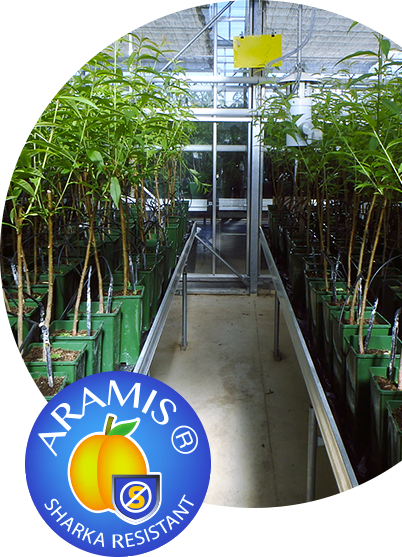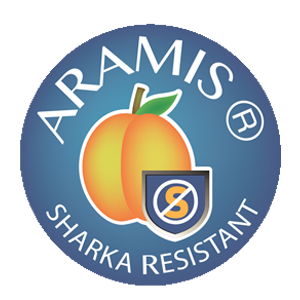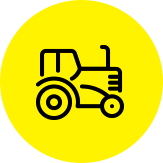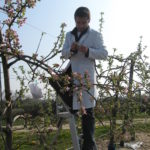In a regulatory context requiring a reduction of inputs (coupled with a growing similar demand from the market), we know how important it is to develop new varieties that are durably resistant to quarantine diseases and other pests.
To date, thanks to INRAE, we have a thorough knowledge of the genomes of fruit species, which enables us, in particular, to carry out molecular marker-assisted selection on certain species. The MAS permits us to eliminate hybrids very early regarding some specific criteria such as self-fertility, size, or more particularly for apricots, sensitivivity to the plum pox virus
Other ongoing researches stand in the incorporation of genetic funds for sustainable resistance to the main pests, for each species.
In a non-exhaustive manner, we focus on selecting cultivars with less susceptibility to monilia, ESFY, bacterial canker, apricot and peach aphids, Drosophila suzukii and other cherry pests, psylla, fire blight and scab in the pear tree.
For rootstocks, the selection criteria also include abiotic criteria such as tolerance to mild winters, drought, bursting, adaptation to replantation …
After crossing the parents so that the offspring is most likely to combine some of these criteria, we then select the most promising hybrids. In France, it is done through the national varietal evaluation system managed by CTIFL but also in our own experimental orchards located in the main production areas of each species evaluated. Internationally, our partners evaluate the adaptation of preselections in their different pedo-climatic conditions.
Before being released, to ensure the robustness of our selection, several repetitions of each cultivar will have been observed between 10 and 25 years on several evaluation sites.






